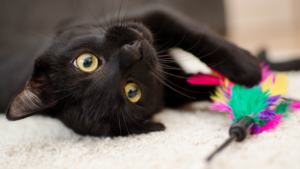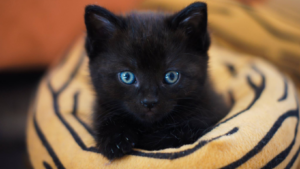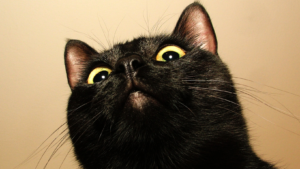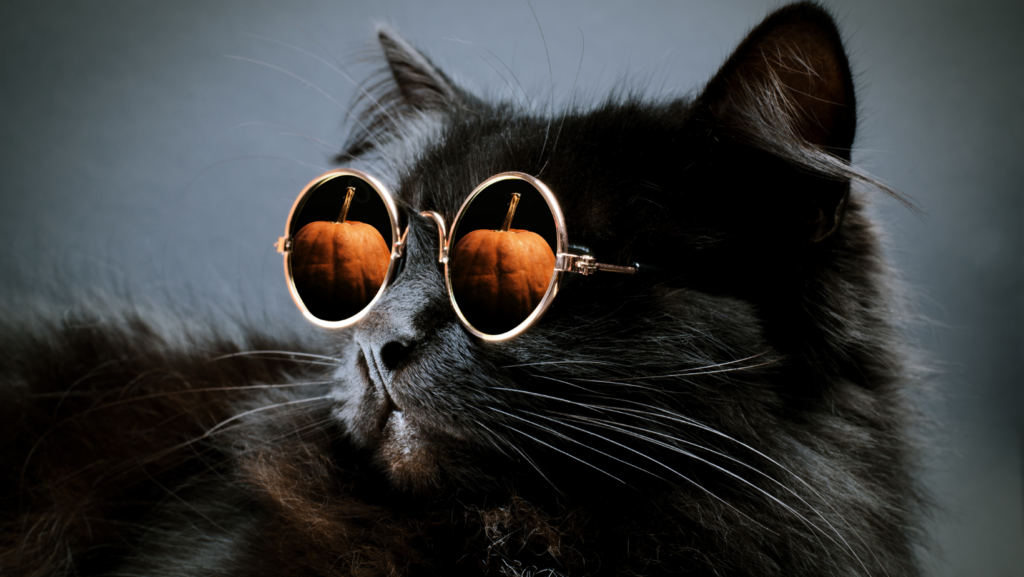Black cats: enigmatic creatures cloaked in darkness, often misunderstood and surrounded by superstitions. These ebony-coated felines have been the subject of myths and legends for centuries, but how much do we really know about them?
This article will delve into the world of black cats, unearthing 10 little known facts about black cats that might surprise even the most fervent cat lover. From their unique genetics to their historical significance, we’ll uncover truths that will make you appreciate these intriguing animals even more. So, sit back, relax, and get ready to learn something new about our black-furred friends.
10 Little Known Facts About Black Cats

Let the charm of the 10 little known facts about black cats astound you further as we delve deeper into their fascinating history and symbolism.
Black cats boast quite a rich history, intertwined with tales and myths. In ancient Egypt, for example, these sable-coated felines were highly esteemed, even venerated. Bastet, an Egyptian goddess who depicted the epitome of harmony and happiness, often manifested in the form of a black cat. This high regard for black cats, however, did not stretch across all time periods and cultures.
During the Middle Ages in Europe, they were seen as evil omens or harbingers of bad luck, largely stemming from their association with witches. Hundreds suffered during witch hunts because of this baseless superstition that survives even today in some parts of the world.
Cultural Perspectives and Symbolism
Different cultures perceive black cats differently, assigning them various symbolic meanings. In some Asian countries like Japan, for instance, they’re believed to bring good luck. A black cat crossing one’s path signals fortune, and it’s particularly beneficial for single women, deemed to increase their chances of finding a prospective suitor.
 Contrary to such positive symbolism, in Western folklore, black cats are often associated with dark forces. They’re seen as mystical creatures, imbued with supernatural powers, and associated with witches and magic—a perception that adds to their mystique but often results in them being misunderstood and feared.
Contrary to such positive symbolism, in Western folklore, black cats are often associated with dark forces. They’re seen as mystical creatures, imbued with supernatural powers, and associated with witches and magic—a perception that adds to their mystique but often results in them being misunderstood and feared.
Nevertheless, despite these disparate views, black cats remain captivating creatures, their allure undeniably linked to their unique history and the various cultural representations associated with them.
Unique Traits of Black Cats
Beyond their distinct dark color, black cats captivate with their unique genetic makeup and distinct behavior that sets them apart from other felines.
Genetic Factors and Fur Color
One of the 10 little known facts about black cats is how they own their deeply obsidian coats to a genetic mutation. The genetic difference, referred to as melanism, significantly enhances the amount of dark pigmentation in a cat’s fur. Because of this mutation, the cats develop a saturated, black-coat color that effortlessly commands attention. The mutation happens in the Extension or Agouti gene, responsible for the distribution of black pigment, known as melanin.
Astoundingly, genetic studies have revealed that most black cats are male. This fact emerges from a genetic trait known as “sex linkage,” where a certain trait is associated mainly with a specific sex. In this case, the black coloration trait links predominantly to male cats.
Black Cats in Popular Culture

Diving deeper, the cultural impressions of the 10 little known facts about black cats extend far beyond folklore and biology. They’ve made significant appearances in superstitions, media, and literature, their charm and mystery contributing to intriguing narratives.
Superstitions surrounding black cats are both infamous and widespread. Many stem from medieval Europe. Here, black cats became associated with witches, their dark color symbolizing evil.
In the United States, black cats signify bad luck. If one crosses your path, superstition dictates it’ll bring misfortune. But this isn’t universal. In Britain and Ireland, for example, they’re luck-bearers. Sailors of yesteryears often took black cats onboard as good luck charms.
Variations of these superstitions are found across the globe, each reflecting unique cultural beliefs. Such widespread superstitions have played roles in shaping public perception of black cats, often to their detriment.

